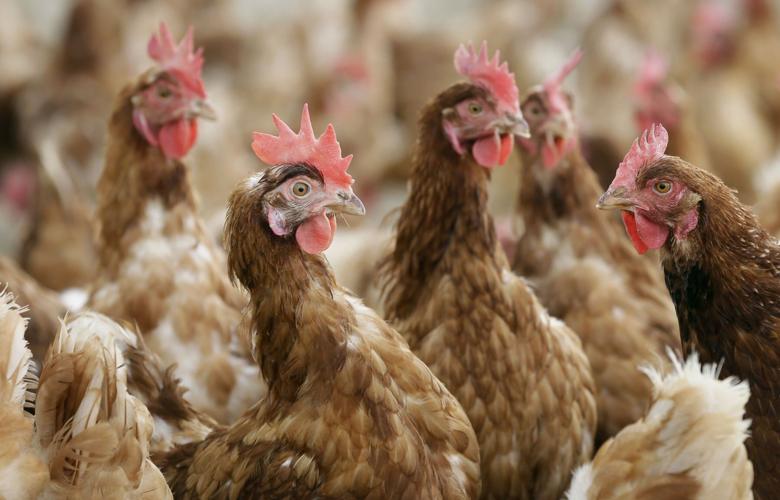‘Cage free’ costs more, no kinder to chickens | Jimmy Sengenberger
As of Jan. 1, every egg sold in Colorado must now come from “cage-free” hens. While the state’s agricultural department insists producers can meet demand, consumers are already feeling the pinch — and it’s scrambling budgets.
But here’s the truth: Colorado’s crackdown on how chickens lay eggs is less about bird comfort than it is about who profits from forcing this change.
“Cage-free facilities” may sound nice. Birds get to “freely roam” with “unlimited access to food and fresh water,” according to the USDA. But they merely swap one type of confinement for another — at a cost that benefits certain producers while squeezing consumers.
When California was hit with the bird flu after implementing its own statewide cage-free-only mandate, it slammed their flocks, contributing to supply chain gaps and soaring prices. Cage-free didn’t prevent the flu’s spread.
While proponents of cage-free mandates argue they improve animal welfare, experts like Hongwei Xin — past director of the Egg Industry Center at Iowa State University — report that cage-free systems often lead to higher bird mortality, greater disease risks and lower feed efficiency that expands their environmental footprint.
Xin warns of increased “likelihood of microbial contamination” lending to egg safety fears — concerns echoed by the Maryland Farm Bureau’s Colby Ferguson, who noted the hen mortality rate rises significantly because of “more bacterial habitat being introduced in the barn.”
Let’s be clear: These systems may harm the very animals they aim to protect — and that doesn’t even account for the financial costs, either.
The poultry industry estimates a $6 billion price tag for switching to cage-free nationwide. For consumers, that means prices nearly 50% higher than caged eggs — and as high as $9 a dozen in states like California, which already mandates cage-free compliance.
Making matters worse, persistent avian flu outbreaks since 2022 — the worst on record — have decimated flocks, cutting egg inventory by 29% the next year and fueling higher prices.
Here’s the problem: There simply aren’t enough cage-free hens to meet skyrocketing demand due to expanding mandates. The USDA recently reported that cage-free systems now makes up 38.7% of the nation’s flock, but the U.S. needs 121 million more hens to bridge the gap. No matter how much politicians push it, the transition won’t happen overnight. It takes time and resources that many producers lack.
Add to that the reduced egg-laying efficiency of cage-free systems, and we’ve got a recipe for grocery shortages and record-high prices. The Colorado Restaurant Association reports that local restaurant operators, already hit hard by the pandemic, are experiencing egg costs spiking as high as over 200% in places like Vail. Unlike big chains such as McDonald’s, which can absorb higher compliance costs, their only options are to raise prices, cut staff — or close.
Colorado’s cage-free law also exemplifies a bigger problem that plagues the economy: a tactic called regulatory capture. Industry players like the Colorado Egg Producers (CEP) backed the cage-free mandate, manipulating regulation for competitive advantage while giving it an air of legitimacy.
But don’t be fooled — their members largely met those requirements already, having made the necessary investments that their larger competitors must now make. Even more, CEP has an internal code and Animal Care Doctrine that’s based around this idea. The new law simply forces their competitors to catch up and adopt costly production methods, driving up costs for others while protecting their own market position.
The impact? Skyrocketing production costs by up to 20%, according to a University of California, Davis study. CEP itself projects operational cost hikes of 16-18%.
Here’s the thing: The same regulatory capture playbook appears across industries. Time after time, industry players across economic sectors gain advantages by leveraging regulations to crush competition.
Tech giants like Facebook welcome burdensome new regulations for privacy and content moderation that their smaller rivals can’t afford. The game is the same: manipulate regulation to create an uneven playing field and gain market share while claiming public benefit.
Last year, established industry groups like the Colorado Veterinary Medical Association opposed Proposition 129, establishing midlevel veterinary practitioners — in truth, not to safeguard consumers but to block competition. As the late economist Milton Friedman quipped, “unfair” competition means anyone charging less.
Approved by voters, Prop 129 allows “veterinary professional associates” to provide lower-cost care under the supervision of licensed veterinarians, much like nurse practitioners — a rare win for consumers in rural areas.
“If the real, true function of licensing is to protect consumers, you would expect the consumers to be lobbying for licensure,” Freidman observed. “But you will discover that it is always the plumbers or the beauticians or the morticians or anything you can name.”
Let’s be clear: Whether it’s eggs, social media or veterinary care, regulatory capture serves industry interests while harming consumers. It raises costs, limits choice and hurts those least able to bear the burden — hitting rural and low-income families the hardest.
Gov. Jared Polis and the legislators who put the cage-free mandate in place can’t fly the coop on this one. They own the fallout — from empty shelves and unaffordable groceries at checkout.
Jimmy Sengenberger is an investigative journalist, public speaker, and longtime local talk-radio host. Reach Jimmy online at Jimmysengenberger.com or on X (formerly Twitter) @SengCenter.






